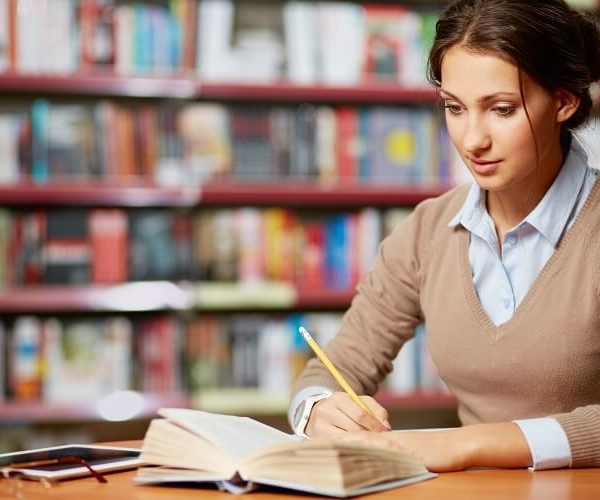The International English Language Test System (IELTS) is an International English language test essential for people and students who wish to migrate, study or work in a native English-speaking country. The scores of the IELTS exam test are accepted by organisations, schools, and government institutions from more than 140 countries.
Every year, millions of people appear for this high-stake English language proficiency exam. The mode of the exam depends on the person appearing for the same. The exam is conducted both digitally and physically. Also, one has to choose between the two modules- IELTS Academic and IELTS General. The module should be selected as per your purpose of visiting the country.
The total test timing is three hours and consists of performing four different sections compulsorily. The four sections are the IELTS reading test, IELTS speaking test, IELTS writing test, and IELTS listening test. Each test is conducted to assess your English language proficiency by aiming at a certain aspect of it every time. You are required to sit for all the tests on a single day, one after the other, and without any breaks as such.
What is the IELTS General Reading Test?
The IELTS Academic Reading test is a 60-minute test that consists of 40 questions and three long passages. The texts are asked from various resources like articles, online blogs, newspapers, magazines, novels, journals, or other important and informative pieces.
The various types of questions that are asked with the textual passages in the IELTS Academic Test are:
# Multiple choice – more than one answer.
# Summary completion.
# Multiple choice – one answer.
# Identifying information – writer’s views or claims.
# Identifying information – True/False/Not given.
# Matching features.
# Flow chart completion.
# Matching headings.
About the Passage with a Short Overview
‘The context, meaning, and scope of tourism’ is a passage that appeared as IELTS Cambridge Reading Test 3 Passage 1. Here is a short overview of the same.
Overview – Paragraph A
Travelling has been around since the start of humanity. The reasons for the same are innumerous. Initially, they were for hunting in groups in search of food, clothing and other basic necessities. Later, it advanced to travelling for pleasure. The proof being the wealthy Roman merchants and aristocrats that moved to their seaside resorts to survive the hot summers in their hometown. It has played an incredible role in building the society that we know today.
The tourism industry that we know today, started in the twentieth century during the industrial revolution. This was because of the increase in the middle-class population and transportation costs that was quite inexpensive.
Paragraph B
After the second world war, the development in the airline sector contributed significantly to mass tourism. Sooner than later, governments all around the world saw tourism as an incredible opportunity to earn foreign cash that could propel the development of their country’s economy.
Tourism has grown and contributed to the country as well as the world economy. The social and economic impact of tourism can no longer be ignored as it has generated great results and profits. Growth in employment, service, income, and investment has been observed.
The industry also faces some difficulties, such as the fragmented sections of the industry itself.
Paragraph C
The spending by the locals is often added with the tourists, failing to accurately represent the contribution of tourism to the economy. Today, the travel and tourism industry is considered the fastest growing industry in the world.
The global impact of tourism can no longer be ignored as it serves as a major source of income for many nations. Many nations such as Europe, Greece, etc., earn the majority of their revenue through the foreign exchange; either by having tourists visit the country or employing the locals for the services sector that aid tourism.
This overview is based on the original extract. Answers to the questions of the context, meaning and scope of tourism passage are mentioned below.
We have compiled the context meaning and scope of tourism reading answers. These answers are based on the questions asked for the same.
IELTS Reading Questions and Answers
Questions 1-4: List of headings
#1: Paragraph B
Answer: The development of mass tourism.
#2: Paragraph C
Answer: Economic and social significance of tourism.
#3: Paragraph D
Answer: Difficulty in recognising the economic effects of tourism.
#4: Paragraph E
Answer: The world impact of tourism.
More IELTS Reading Questions and Answers
Question 5-10: ‘True’, ‘False’ or ‘Not given’
#5: The travel and tourism industry is said to consist of the largest figures when it comes to employment in the world.
Answer: True
#6: Around six per cent of the total Gross National Product of the Australian economy is said to be derived from tourism.
Answer: Not Given
#7: Recreation is promoted due to the social impact that tourism brings about.
Answer: Not Given
#8: The two main reasons given make it difficult to ascertain the travel and tourism industry’s economic significance
Answer: True
#9: The visitors always spend more than the residents of the area.
Answer: Not Given
#10: it is considered very easy to statistically show how the tourism industry affects individual economies
Answer: False
Questions 11-13: Completing sentences with NO MORE THAN THREE WORDS
#11: Tourism is considered the most important——— in Greece.
Answer: Source of income.
#12: The travel and tourism industry in Jamaica is the major————
Answer: Employer.
Conclusion
The above passage has tourism IELTS reading answers to help you with your IELTS practice. Reading is one section of the overall test. Make sure to read as much English material as you can as it will help to have an edge on other sections.
IELTS Ninja is your one-stop destination that covers all your IELTS queries and doubts. We know and understand your needs regarding your test preparation, which is why we offer one-on-one sessions. Our mentors focus on providing you with the best IELTS content through interactive multimedia lessons and personalised content as per your requirement. Check out the website and stay connected through our regular newsletters and articles.










